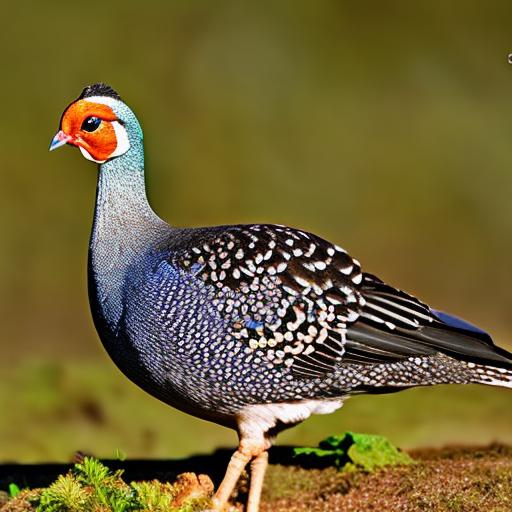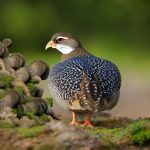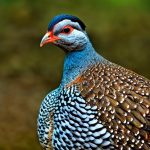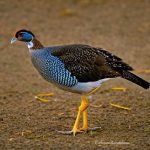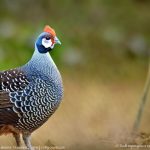Guinea fowl, also known as pintades, are domesticated birds that are native to the African continent. They are closely related to other game birds such as pheasants and turkeys. Guinea fowl are popular for their unique appearance, with their speckled feathers and distinctive helmet-like casque on their heads. They are also valued for their ability to control pests such as ticks, flies, and other insects, making them a popular choice for organic pest control on farms and homesteads.
Guinea fowl are hardy birds that are well-suited to a variety of climates, making them a popular choice for small-scale poultry farming. They are also known for their loud and distinctive calls, which can serve as a natural alarm system to alert owners of potential threats. Guinea fowl are social birds that thrive in small flocks, and they are known for their strong flock instincts and tight-knit social structures. Overall, guinea fowl are an interesting and valuable addition to any poultry operation, and they can provide both practical benefits and entertainment for their owners.
Key Takeaways
- Guinea fowl are hardy and low-maintenance birds that are popular for their pest control abilities and flavorful meat.
- Guinea fowl require adequate housing and space, with a minimum of 3-4 square feet per bird in the coop and access to a large outdoor area for foraging.
- A balanced diet of commercial poultry feed, grains, and access to insects and greens is essential for the health and productivity of guinea fowl.
- Regular health checks, vaccinations, and access to a qualified avian veterinarian are important for maintaining the well-being of guinea fowl.
- Guinea fowl are social birds that thrive in flocks, but they can be aggressive towards other poultry and may require careful introduction and monitoring.
Housing and Space Requirements
When it comes to housing guinea fowl, it’s important to provide them with a secure and spacious environment that allows for both shelter and outdoor access. A well-ventilated coop or shelter is essential to protect guinea fowl from the elements and predators. The coop should have roosting bars or platforms for the birds to perch on at night, as well as nesting boxes for egg-laying if you plan to keep them for their eggs. The coop should also have easy access for cleaning and maintenance, as guinea fowl can be messy birds.
In addition to a secure coop, guinea fowl also require access to outdoor space for foraging and exercise. A fenced-in yard or pasture area is ideal for allowing guinea fowl to roam freely while still keeping them safe from predators. Guinea fowl are active birds that enjoy exploring their surroundings, so providing them with ample space to roam is important for their overall well-being. Overall, providing guinea fowl with a secure and spacious housing setup is essential for keeping them healthy and happy.
Feeding and Nutrition
Guinea fowl are omnivorous birds that have a varied diet consisting of seeds, grains, insects, and small invertebrates. In a free-range setting, guinea fowl will forage for much of their food, consuming a wide range of insects and plants. However, it’s important to supplement their diet with a balanced commercial poultry feed to ensure they are getting all the necessary nutrients. A high-quality game bird or turkey feed is a good option for guinea fowl, as it provides the protein and energy they need to thrive.
In addition to commercial feed, guinea fowl can also be given treats such as fruits, vegetables, and mealworms as a supplement to their diet. It’s important to provide access to fresh water at all times, especially during hot weather when guinea fowl may need extra hydration. Overall, providing guinea fowl with a balanced diet that meets their nutritional needs is essential for keeping them healthy and productive.
Health and Veterinary Care
Guinea fowl are generally hardy birds that are resistant to many common poultry diseases. However, they still require regular care and monitoring to ensure they stay healthy. It’s important to provide guinea fowl with a clean and dry living environment to prevent the spread of disease. Regular cleaning of the coop and nesting areas is essential for maintaining good health in the flock.
In addition to good hygiene practices, it’s important to monitor the flock for signs of illness or injury. Common health issues in guinea fowl include respiratory infections, parasites, and injuries from predators or accidents. It’s important to have a good working relationship with a poultry veterinarian who can provide guidance on preventative care and treatment options if health issues arise. Overall, providing regular care and monitoring for the health of guinea fowl is essential for keeping them in good condition.
Behavior and Socialization
Guinea fowl are social birds that thrive in small flocks, and they have strong flock instincts that help them stay safe from predators. They are known for their loud calls and alert behavior, which can serve as a natural alarm system to alert owners of potential threats. Guinea fowl are also known for their curious and active nature, as they enjoy exploring their surroundings and foraging for food.
In addition to their social behavior, guinea fowl are also known for their strong mating instincts. They form monogamous pairs during the breeding season and can be protective of their mates and nesting areas. It’s important to provide guinea fowl with plenty of space and resources to allow for natural behaviors such as mating, nesting, and foraging. Overall, understanding the behavior and social dynamics of guinea fowl is important for providing them with a suitable living environment.
Predation and Protection
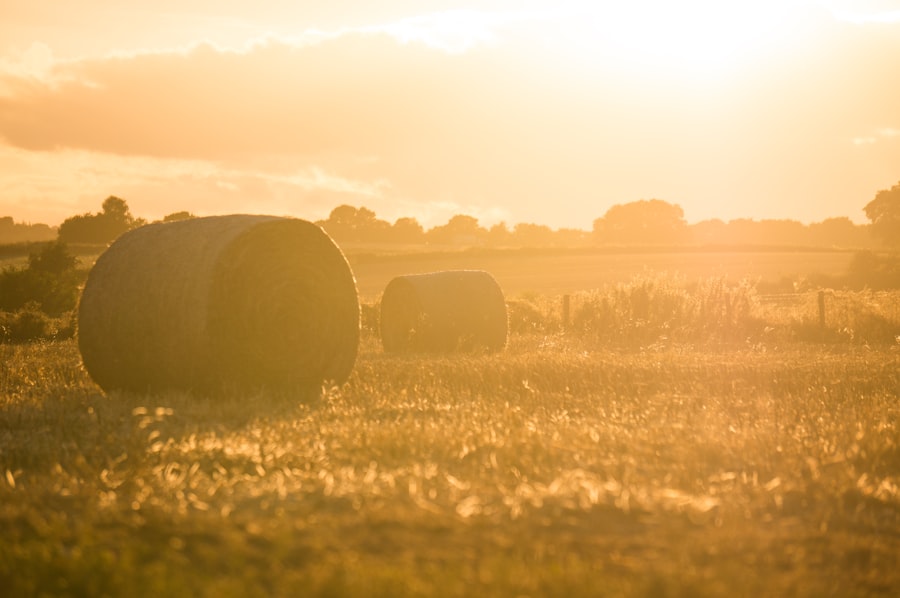
Guinea fowl are vulnerable to predation from a variety of animals, including foxes, raccoons, hawks, and domestic dogs. It’s important to provide guinea fowl with a secure housing setup that protects them from potential threats. This may include using hardware cloth or welded wire fencing to create a predator-proof enclosure for the birds to roost in at night.
In addition to secure housing, it’s important to provide guinea fowl with access to open areas where they can keep an eye out for potential threats. Guinea fowl have excellent eyesight and hearing, which allows them to detect predators from a distance. Providing them with ample space to roam while still keeping them safe from predators is essential for their overall well-being. Overall, protecting guinea fowl from predation requires a combination of secure housing and access to open areas where they can remain vigilant.
Are Guinea Fowl Easy to Keep?
In conclusion, guinea fowl are unique and valuable birds that can be a rewarding addition to a small-scale poultry operation. They are hardy birds that are well-suited to a variety of climates, making them relatively easy to care for compared to other poultry species. However, they do require a secure housing setup that provides both shelter and outdoor access, as well as a balanced diet that meets their nutritional needs.
Guinea fowl also require regular care and monitoring for their health, as well as protection from potential predators. Understanding their behavior and social dynamics is important for providing them with a suitable living environment that allows for natural behaviors such as mating, nesting, and foraging. Overall, while guinea fowl do require some specific care considerations, they can be relatively easy to keep with the right knowledge and preparation.
If you’re considering raising guinea fowl, you may also be interested in learning about the incubation period for goose eggs. Poultry Wizard has a helpful article on this topic that provides valuable insights into the breeding and hatching process of geese. Check out their article on What Is the Incubation Period for Goose Eggs to expand your knowledge on poultry breeding and care.
FAQs
What are guinea fowl?
Guinea fowl are a type of bird that are native to Africa. They are known for their distinctive spotted feathers and loud, chattering calls.
Are guinea fowl easy to keep?
Guinea fowl can be relatively easy to keep, as they are hardy birds that are able to forage for much of their own food. However, they do require some specific care and attention, such as protection from predators and proper housing.
What do guinea fowl eat?
Guinea fowl are omnivores and will eat a variety of foods, including insects, seeds, and small fruits. They can also be given commercial poultry feed to supplement their diet.
Do guinea fowl require special housing?
Guinea fowl do require a secure and predator-proof housing, especially at night. They also need access to outdoor space for foraging and dust bathing.
Are guinea fowl noisy?
Guinea fowl are known for their loud calls, which can be quite noisy, especially during the breeding season. This should be taken into consideration when keeping them in residential areas.
Do guinea fowl require any special medical care?
Guinea fowl generally do not require any special medical care, as they are hardy birds. However, they should be monitored for common poultry diseases and parasites. Regular vaccinations and deworming may be necessary.
Meet Walter, the feathered-friend fanatic of Florida! Nestled in the sunshine state, Walter struts through life with his feathered companions, clucking his way to happiness. With a coop that’s fancier than a five-star hotel, he’s the Don Juan of the chicken world. When he’s not teaching his hens to do the cha-cha, you’ll find him in a heated debate with his prized rooster, Sir Clucks-a-Lot. Walter’s poultry passion is no yolk; he’s the sunny-side-up guy you never knew you needed in your flock of friends!

